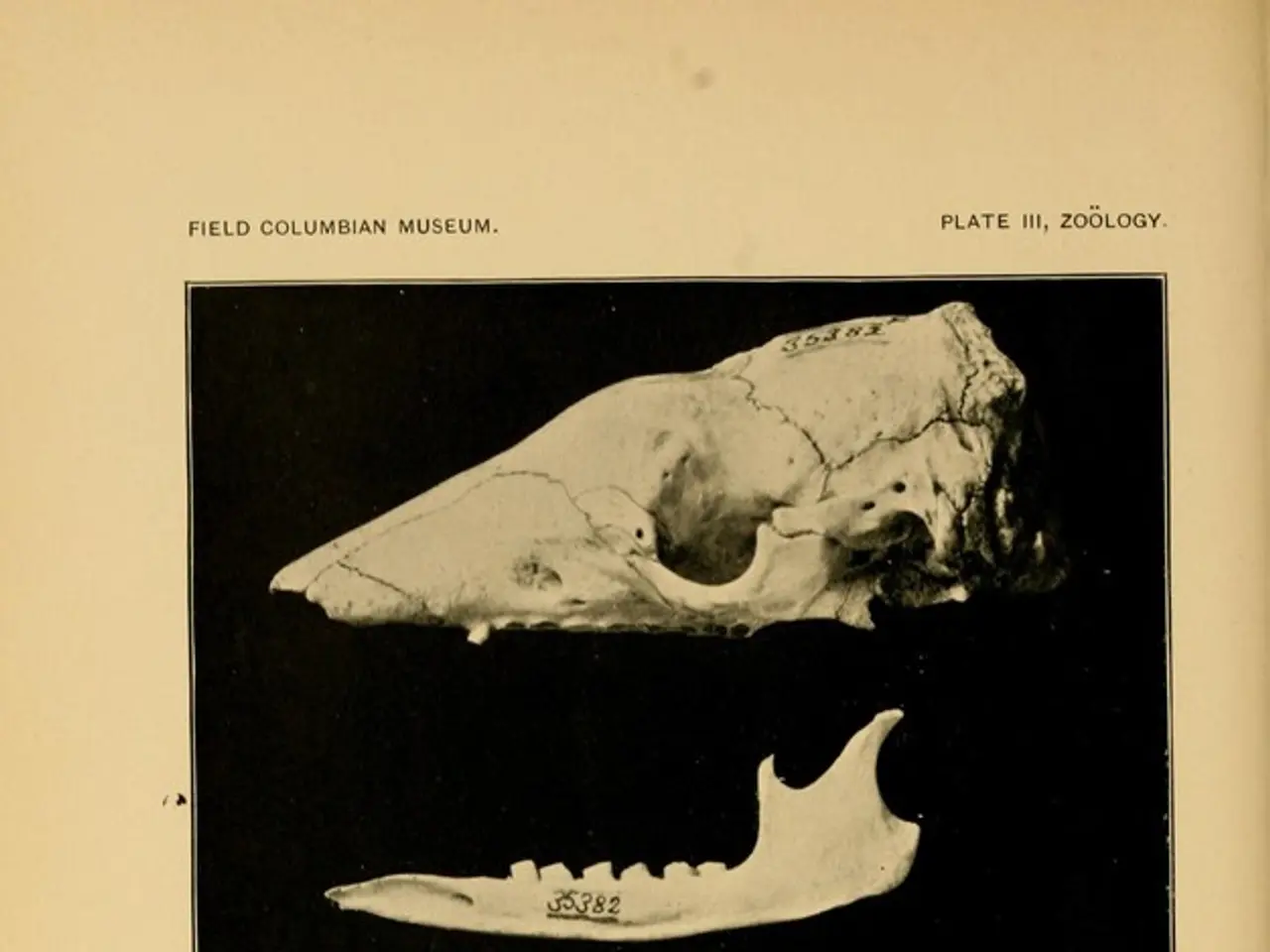Genetic Disorder Insights: Causes, Symptoms, and Remedies for Treacher Collins Syndrome
Treacher Collins Syndrome (TCS), a genetic disorder marked by craniofacial abnormalities, is a challenge that affects approximately 1 in 50,000 live births worldwide. The condition, also known as mandibulofacial dysostosis, results in abnormalities in the head, face, and ears, and can lead to severe consequences if left untreated.
Current treatments for TCS primarily focus on surgical interventions to improve facial structure and function. Common procedures include bone grafting for cheekbone and orbital rim reconstruction, as well as external canthopexy to correct eye alignment. These surgeries aim to enhance facial aesthetics and improve functional aspects such as hearing and breathing.
In addition to surgery, treatment also involves managing associated complications like hearing loss and difficulties with speech and swallowing. Techniques such as speech therapy and hearing aids are often employed.
While traditional surgical methods are effective, there is ongoing research into more innovative treatments. One such area of interest is stem cell therapy, which could potentially be applied to craniofacial abnormalities. However, specific applications or advancements in stem cell therapy for TCS are not widely documented in recent literature.
Another promising area of research is in-womb treatments, or in utero interventions. Currently, there are no established in-womb treatments for Treacher Collins Syndrome. Research into in-utero interventions is primarily focused on conditions like spina bifida, where fetal surgery can be performed to address neural tube defects. For TCS, the focus remains on postnatal surgical corrections.
Recent studies have explored the use of antioxidant treatments in models of developmental disorders. For example, maternal antioxidant treatment has shown promise in reducing developmental defects in certain models, suggesting potential avenues for therapeutic research. However, these findings are early and require further investigation to translate into human treatments.
The outlook for individuals with Treacher Collins syndrome is generally good, with most children having normal development and intelligence. However, the specific outlook depends on the severity of the syndrome and the individual's specific symptoms. Newborn infants with TCS may require procedures to improve breathing and the functioning of the airway, such as special positioning and making an opening in the windpipe.
Treatment of TCS involves several health professionals, including a pediatrician, orthodontist, dentist, skull and face surgeon, speech therapist, geneticist, nurses, eye doctor, hearing specialist, ear, nose, and throat specialist, and a genetic counselor. Radiographic exams, such as X-rays or computed tomography (CT) scans, may be used to detect abnormalities in the development of the cheekbones and jawbone.
Genetic counseling may be suggested to individuals with TCS or their families to discuss the outlook for a genetic disorder and the chances of passing the condition on. Approximately 40% of people with TCS have a parent or parents who carry affected genes, while the remaining 60% develop the condition due to a new mutation. A prenatal consultation is recommended if a mutation has been detected within a family, as there is an increased risk of a new baby getting TCS and having the condition.
In summary, while traditional surgical interventions remain the primary treatment for TCS, ongoing research into new therapeutic approaches, including potentially those involving stem cells or antioxidant treatments, holds promise for future advancements. However, there are no established treatments involving stem cell therapy or in-womb interventions for TCS at this time.
- The genetic disorder Treacher Collins Syndrome (TCS) impacts approximately 1 in 50,000 live births globally, characterized by craniofacial abnormalities.
- TCS, also known as mandibulofacial dysostosis, results in head, face, and ear abnormalities, potentially leading to severe consequences if left untreated.
- Common surgical interventions for TCS revolve around bone grafting for cheekbone and orbital rim reconstruction, as well as external canthopexy for eye alignment enhancement.
- These surgeries aim to improve facial aesthetics and functional aspects like hearing and breathing for individuals with TCS.
- Alongside surgery, treatment also addresses hearing loss and speech and swallowing difficulties through techniques such as speech therapy and hearing aids.
- Stem cell therapy, though promising, lacks significant documented advancements in TCS treatments in recent literature.
- In-womb treatments or in utero interventions are the primary focus of research for conditions like spina bifida, not TCS, at present.
- Some research is being conducted on the use of antioxidant treatments in models of developmental disorders, demonstrating potential for therapeutic research.
- The outlook for individuals with TCS is generally positive, with most children having normal development and intelligence, but the severity of symptoms impacts the specific outlook.
- Newborn infants with TCS may require procedures to improve breathing and airway function, such as special positioning and windpipe openings.
- Pediatricians, orthodontists, dentists, skull and face surgeons, speech therapists, geneticists, nurses, eye doctors, hearing specialists, ear, nose, and throat specialists, and genetic counselors are among the health professionals involved in TCS treatment.
- Radiographic exams like X-rays or computed tomography (CT) scans may be used to detect abnormalities in the development of the cheekbones and jawbone.
- Genetic counseling can help individuals with TCS or their families understand the outlook for a genetic disorder and chances of passing the condition on.
- Approximately 40% of people with TCS have affected parents, while the remaining 60% develop the condition due to new mutations.
- A prenatal consultation is recommended if a TCS mutation has been detected within a family to discuss the increased risk of a new baby getting TCS and having the condition.
- Future advancements in TCS treatments are anticipated through ongoing research into new therapeutic approaches like stem cells or antioxidant treatments, but no established treatments involving these methods exist yet.




